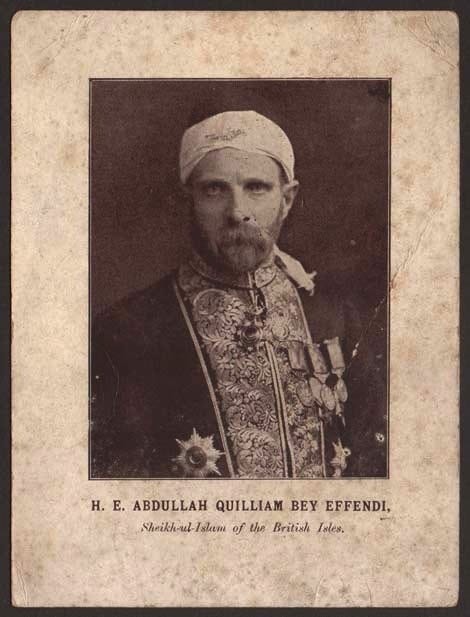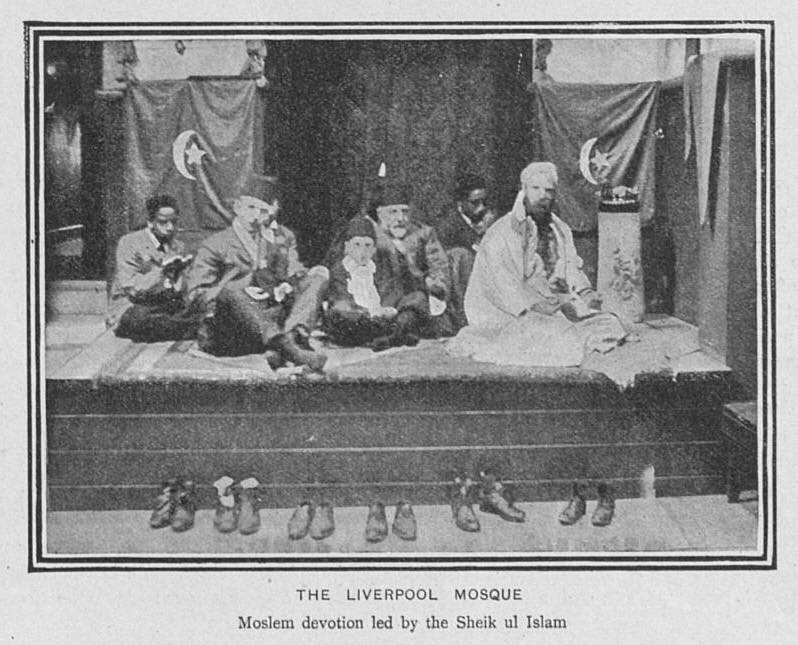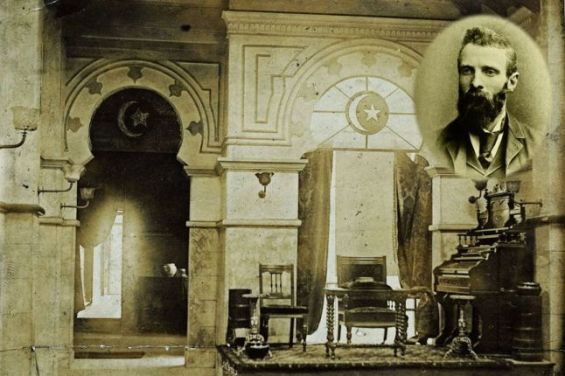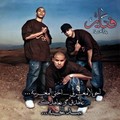William Henry Quilliam is known as the first Englishman to renounce Christianity for Islam. Following a trip to Morocco, the Liverpool-native converted to Islam, changing his name to Abdullah. It all started in the late 1880s when Quilliam was advised to travel overseas by his doctors.
While in Gibraltar, 31-year-old Quilliam decided to visit the Moroccan city of Tangier. «After I had arrived in Gibraltar, I boarded a ship to Tangier to see the lands of Morocco», he said in a speech he delivered in Cairo in 1928.
A trip to Tangier
«While I was on the ferry, I saw some Moroccan Hajjis scooping up water from the sea and using it carefully and scrupulously to wash themselves», said the man who was surprised by the way these Muslim worshippers were devoted to their religion. «The ship set sail and as soon as it left the port, these Hajjis stood neatly together in a line and started to do the prayer, in full submission and tranquility – they were not at all troubled by the force of the strong wind, or by the swaying of the ship», he recalled.

Quilliam was impressed and moved by the Moroccan Hajjis and the whole scene changed something in him and pushed him to try to learn more about Islam. Once in Tangier, the English solicitor met a Muslim man. He «spoke English and we remained companions, especially when he saw that I wanted to learn about the principles of Islam and the ties that brings Muslims together», he said.
Quilliam’s Moroccan friend made him meet a Jewish man who took time to explain what Islam meant in a simplified way. The man listened carefully and realized that what he heard was «reasonable and logical». «I felt it did not contradict my beliefs», Quilliam said during a lecture held at the Muslim Youth Association Centre in Egypt.
The brief introduction about Islam made of Quilliam a book worm. He read books on Islam to learn more about the religion from scholars and authors. He also read a translated copy of the Quran. By the time he was ready to leave Tangier, Quilliam converted to Islam.
Liverpool's first mosque
In 1887, the man returned to Liverpool, where he announced that he became a Muslim. According to Cardiff University, Abdullah Quilliam had even started «holding meetings for those interested» in Islam. Moreover, the BBC indicates in one of its articles that as a preacher, Quilliam was able to convert 600 people to Islam across the UK.
In addition to the activities related to his conversion, Quilliam worked on defending the rights of the privileged people in Liverpool.
Indeed, the man is behind the creation of Liverpool's first mosque. In 1893, Abdullah was «able to find premises in Brougham Terrace to be used as a mosque and meeting hall». The facility included, two Muslim schools, an orphanage, a museum of Muslim culture, a library and education facilities for Liverpool’s working classes.

His initiative was backed by the Ottoman Empire, which heard of his conversion and good deeds. One year later, he was appointed by the Ottoman Empire as Sheikh al-Islam in the British Isles.
A pamphlet he wrote on Islam, called «Faith of Islam», was translated to 13 languages, following the orders of Queen Victoria. In addition to his writings, he established a weekly Muslim newspaper and a monthly journal. «His newspaper went out to over eighty Muslim nations and brought Abdullah Quilliam to the attention of the wider Muslim world», Cardiff University wrote.
Abdullah Quilliam’s name is a famous name in Liverpool, even after all these years. The first mosque of the city bears his name, including a team that wants to restore the facility.





 chargement...
chargement...












